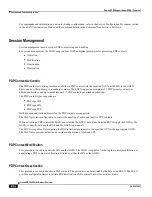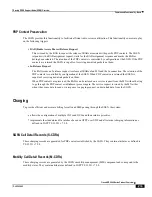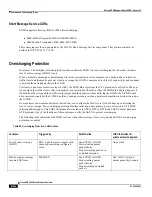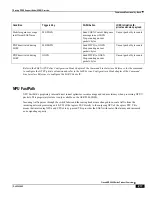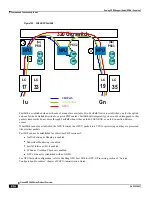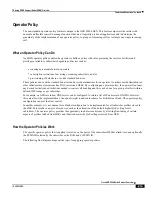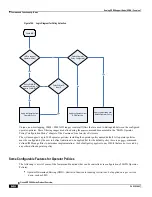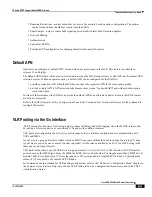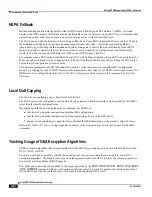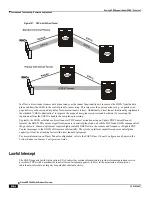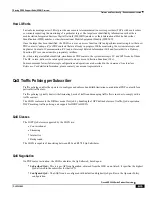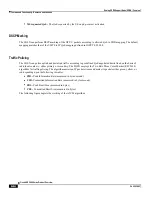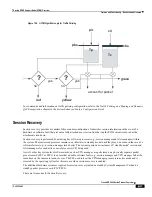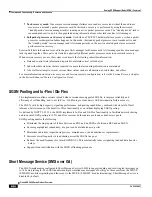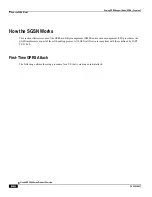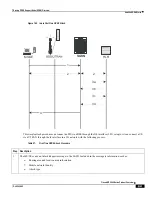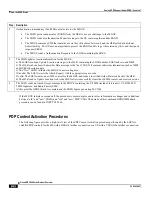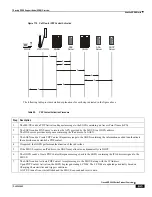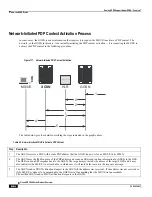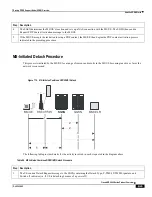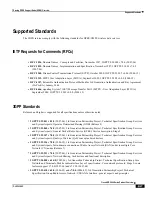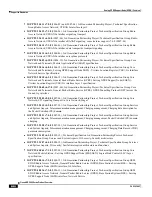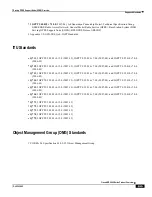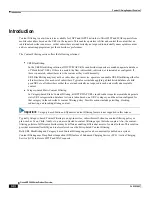
Serving GPRS Support Node (SGSN) Overview
▀ Features and Functionality - Enhanced and Licensed
▄ Cisco ASR 5000 Series Product Overview
OL-22938-02
Task recovery mode:
One or more session manager failures occur and are recovered without the need to use
resources on a standby packet processor card. In this mode, recovery is performed by using the mirrored
―standby-mode‖ session manager task(s) running on active packet processor cards. The ―standby-mode‖ task is
renamed, made active, and is then populated using information from other tasks such as AAA manager.
Full packet processor card recovery mode:
Used when a PSC/PSC2 hardware failure occurs, or when a packet
processor card migration failure happens. In this mode, the standby packet processor card is made active and
the ―standby-mode‖ session manager and AAA manager tasks on the newly activated packet processor card
perform session recovery.
Session/Call state information is saved in the peer AAA manager task because each AAA manager and session manager
task is paired together. These pairs are started on physically different packet processor cards to ensure task recovery.
When session recovery occurs, the system reconstructs the following subscriber information:
Data and control state information required to maintain correct call behavior
Subscriber data statistics that are required to ensure that accounting information is maintained
A best-effort attempt to recover various timer values such as call duration, absolute time, and others
For more information on session recovery use and session recovery configuration, refer to the
Session Recovery
chapter
in the
System Enhanced Feature Configuration Guide
.
SGSN Pooling and Iu-Flex / Gb-Flex
This implementation allows carriers to load balance sessions among pooled SGSNs, to improve reliability and
efficiency of call handling, and to use Iu-Flex / Gb-Flex to provide carriers with deterministic failure recovery.
The SGSN, with its high capacity, signaling performance, and peering capabilities, combined with its level of fault
tolerance, delivers many of the benefits of Flex functionality even without deploying SGSN pooling.
As defined by 3GPP TS 23.236, the SGSN implements Iu-Flex and Gb-Flex functionality to facilitate network sharing
and to ensure SGSN pooling for 2.5G and 3G accesses as both separate pools and as dual-access pools.
SGSN pooling enables the following:
Eliminates the single point of failure between an RNC and an SGSN or between a BSS and an SGSN.
Ensures geographical redundancy, as a pool can be distributed across sites.
Minimizes subscriber impact during service, maintenance, or node additions or replacements.
Increases overall capacity via load sharing across the SGSNs in a pool.
Reduces the need/frequency for inter-SGSN RAUs. This substantially reduces signaling load and data transfer
delays.
Supports load redistribution with the SGSN offloading procedure.
Short Message Service (SMS over Gd)
The SGSN implements a configurable Short Message Service (SMS) to support sending and receiving text messages up
to 140 octets in length. The SGSN handles multiple, simultaneous messages of both types: those sent from the MS/UE
(SMS-MO: mobile originating) and those sent to the MS/UE (SMS-MT: mobile terminating). Short Message Service is
disabled by default.
Summary of Contents for ASR 5000 Series
Page 1: ......
Page 26: ......
Page 48: ...New In Release 10 0 SCM Features Cisco ASR 5000 Series Product Overview OL 22938 02 ...
Page 50: ......
Page 58: ......
Page 68: ......
Page 126: ......
Page 138: ......
Page 146: ......
Page 218: ......
Page 236: ......
Page 356: ......
Page 374: ......
Page 422: ......
Page 496: ......
Page 572: ......
Page 654: ......
Page 700: ......
Page 726: ......
Page 784: ......
Page 816: ......
Page 844: ......
Page 906: ......
Page 926: ......
Page 942: ......
Page 943: ...Cisco ASR 5000 Series Product Overview OL 22938 02 Chapter 30 Technical Specifications ...
Page 966: ......
Page 972: ......

